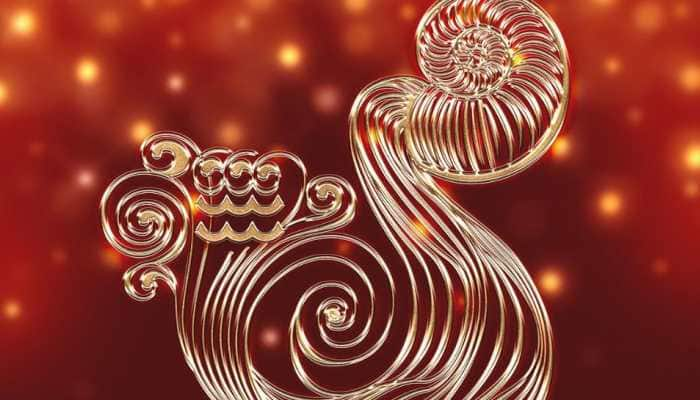“With malice toward none; with charity for all; with firmness in the right, as God gives us to see the right, let us strive on to finish the work we are in; to bind up the nation's wounds....”, words inscribed on the Lincoln Memorial in Washington DC rightly define him as ‘a little engine that knew no rest’. “Honest Abe” as he was known by compatriots never let the world forget that the American Civil War involved larger issue that made him the Champion of Freedom from Slavery. He redefined politics of Republican values by promoting Nationalism and expanding the powers of the Federal government. Call him the greatest President of America or an unmatched visionary or a tireless warrior or a protectionist of Freedom (from slavery) or a Nationalist to the core…one can find innumerable facets of Abraham Lincoln.
An Astute Politician
Rising from a humble background in Illinois to the highest position of the President of the World’s oldest Democracy, Abraham Lincoln served as the 16th President of United States of America and the first from the Republican Party. He entered into politics in 1832 at 23 years of age. He campaigned for the Illinois General Assembly polls. In 1858, he filled the Republican nomination for Senate. His debates with opponent Douglas became famous to the extent that it took the form of a nationally famous contest on Slavery. He openly challenged the opposition, “A House divided against itself cannot stand. I believe this government cannot endure permanently half-slave and half-free.”
Politically, his humble background and his honest image were exploited to the fullest. On November 6, 1860, Lincoln was elected as the 16th President of the United States, defeating Stephen A Douglas.
Five months before receiving his party’s nomination for the President, he penned down about himself, “I was born Feb. 12, 1809, in Hardin County, Kentucky. My parents were both born in Virginia, of undistinguished families- second families, perhaps I should say. My mother, who died in my tenth year, was of a family of the name of Hanks.... My father ... removed from Kentucky to ... Indiana, in my eighth year.... It was a wild region, with many bears and other wild animals still in the woods. There I grew up.... Of course when I came of age I did not know much. Still somehow, I could read, write, and cipher ... but that was all.”
In order to meet his goal of confederation of the state and eradicating slavery, he used unconstitutional powers. He was criticized for declaring martial law, suspending the writ of habeas corpus and making countrywide arrests and imposing civil war on citizens by enlarging the executive powers.
Civil War Captain
“Both parties deprecated war, but one of them would make war rather than let the nation survive, and the other would accept war rather than let it perish, and the war came…” said Abraham Lincoln, declaring the war against secessionists. It was a separatist conflict between the US Federal Government and eleven seven states. Lincoln led the Union of America and called on the states for 75,000 volunteers. Troops were ordered to recapture forts, protect the capital and preserve the Union. He outmaneuvered the Confederacy and took control over slave-states bordering the Union. Insurrection could not persist and in September 1862, Emancipation Proclamation made the freeing of the slaves along with the creation of the United States of America.
Crusader/ Campaigner against Confederacy
Lincoln warned the South, “In your hands, my dissatisfied fellow countrymen, and not in mine, is the momentous issue of civil war. The government will not assail you.... You have no oath registered in Heaven to destroy the government, while I shall have the most solemn one to preserve, protect and defend it.” Like an ardent campaigner against Confederacy, he achieved his main goal of preserving the Union by first ending the Slavery in Confederacy through his emancipation Proclamation in 1862 and hence weakening the opponents by giving an air to their conflicts. In 1865 he abolished Slavery forever by bringing in the 13th amendment of the US Constitution. It is said that from a very young age, he was exposed to anti-slavery sentiment through his parents’ participation in it. So like a fervent antagonist of slavery, he uttered, “Whenever I hear anyone arguing for slavery I feel a strong impulse to see it tried on him personally.”
Undoubtedly, he freed slave states and abolished slavery in America but critics call it a mere strategy to fight Confederacy. He himself admitted, “…my paramount object in this struggle is to save the Union and is not either to save or to destroy slavery…”
Initially, he even supported slavery in those states that chose to remain loyal to the Union. Just to achieve the goal of preserving the union he supported Colonization in his second annual message to Congress on December 1, 1862, “I cannot make it better known than it already is that I strongly favour colonization.”
Eloquent Orator
Lincoln mastered the art of elocution though he hardly received any formal education. He made extraordinary efforts to attain knowledge while working on a farm, splitting rails for fences, and keeping store at New Salem, Illinois. Yet no one can beat in his art of delivering impressive and inspiring speeches. It was his this very art that made him famous in politics and raised him to the highest position.
He delivered such speeches that not just made him affectionate to his countrymen but also the rubbed an inerasable impression on the world.
Like a champion of Freedom he maintained, “Those who deny freedom to others, deserve it not for themselves; and under a just God, cannot long retain it…”
His idea of Democracy was, “As I would not be a slave, so I would not be a master. This expresses my idea of democracy. Whatever differs from this, to the extent of the difference, is no democracy.”
He played with words shrewdly and challenged his political opponents in Presidential election, “I would rather be defeated with this expression (house divided against itself) in the speech, and uphold and discuss it before the people, than be victorious without it”
He reflected his vision by delivering his message to his countrymen and the entire world, “I leave you, hoping that the lamp of Liberty will burn in your until there shall no longer be a doubt that all men are created free and equal”.
Abe’s Assassination
This great man who freed America with the blot of Slavery and who changed the racial
future of the United States was assassinated brutally by a Southern-sympathizer and Negrophobe John Wilkes Booth. He believed,
“Our country owed all her troubles to him, and God simply made me the instrument of his punishment”.
On Good Friday, April 14, 1865, he was assassinated at Ford's Theatre in Washington by John Wilkes Booth, an actor, who somehow thought he was helping the South. He was a Confederate spy from Maryland. He grabbed a golden opportunity when the President without his bodyguards along with his wife went to attend the play Our American Cousin at Ford’s Theatre. When the entire theatre was busy in enjoying the play, Booth jumped into the box with the President and aimed a single-shot at his head. His death made a President, a martyr and a National Hero for every American.
After battling with life in the hospital for more than nine years, he died uttering, “Now I belong to the ‘ages’/ ‘angels’”. There is some disagreement among historians on his last word as ‘ages’ or ‘angels’.
Addressing Abraham Lincoln, the Captain of the Civil War, poet Walt Whitman composed a beautiful elegy:
O Captain! My Captain! Our fearful trip is done;
The ship has weathered every rack, the prize we sought is won;
But O Heart! Heart! Heart!
O the bleeding drops of red!
Where on the deck my Captain lies,
Fallen cold and dead.”







)
)
)
)
)
)
)
)
)
)
